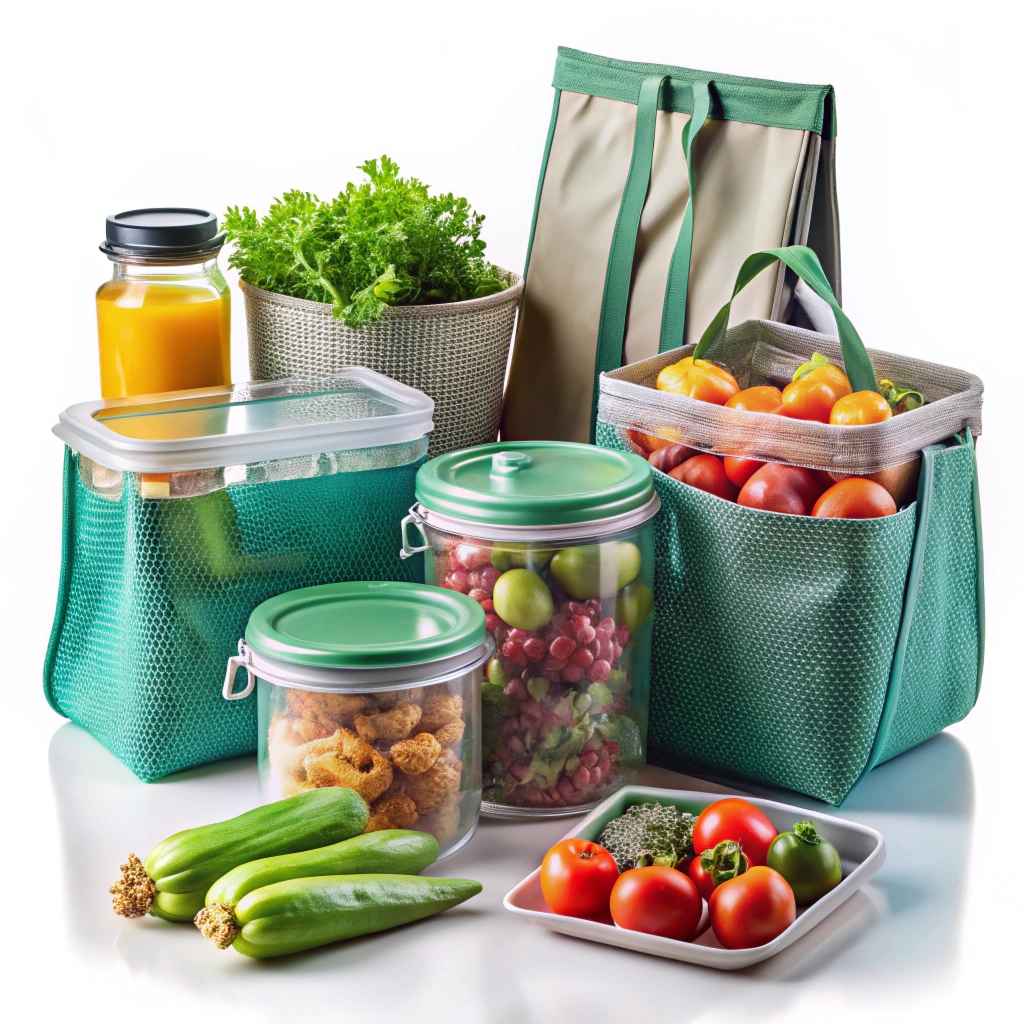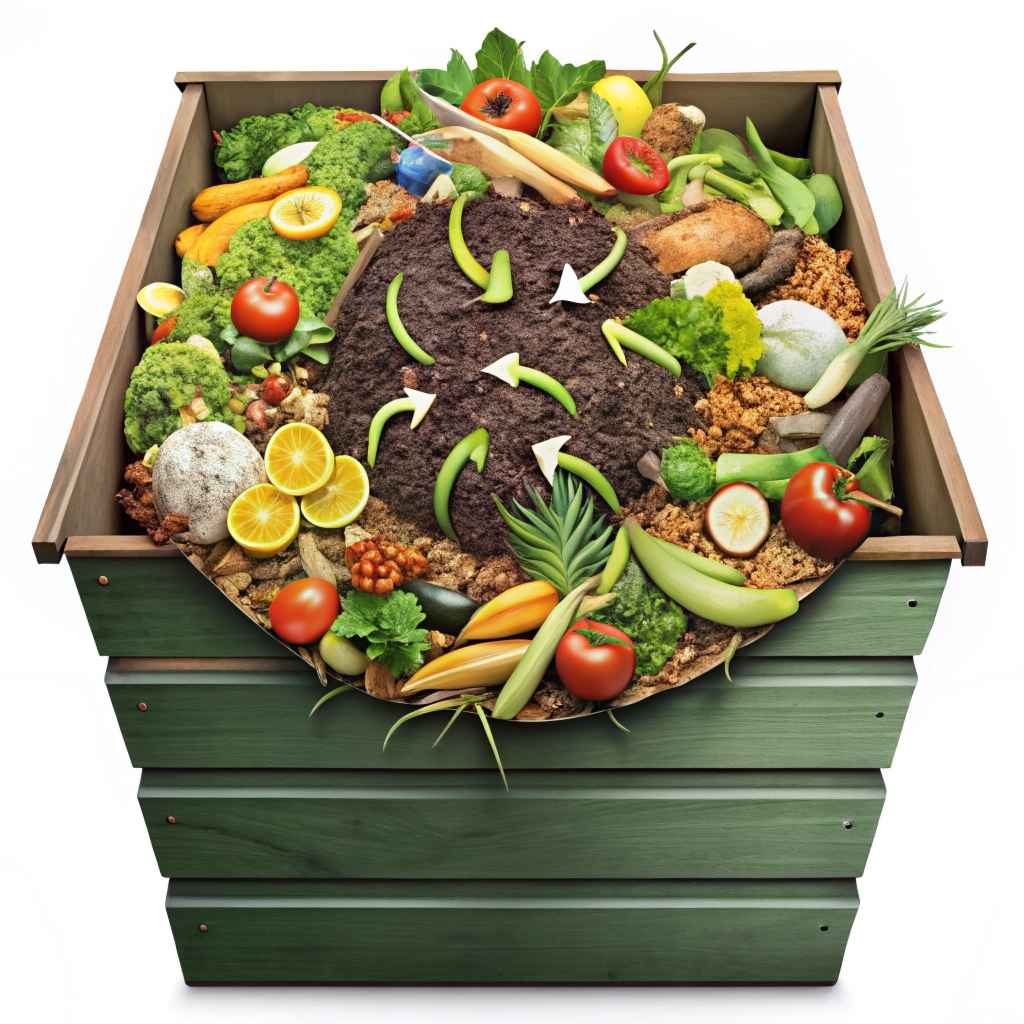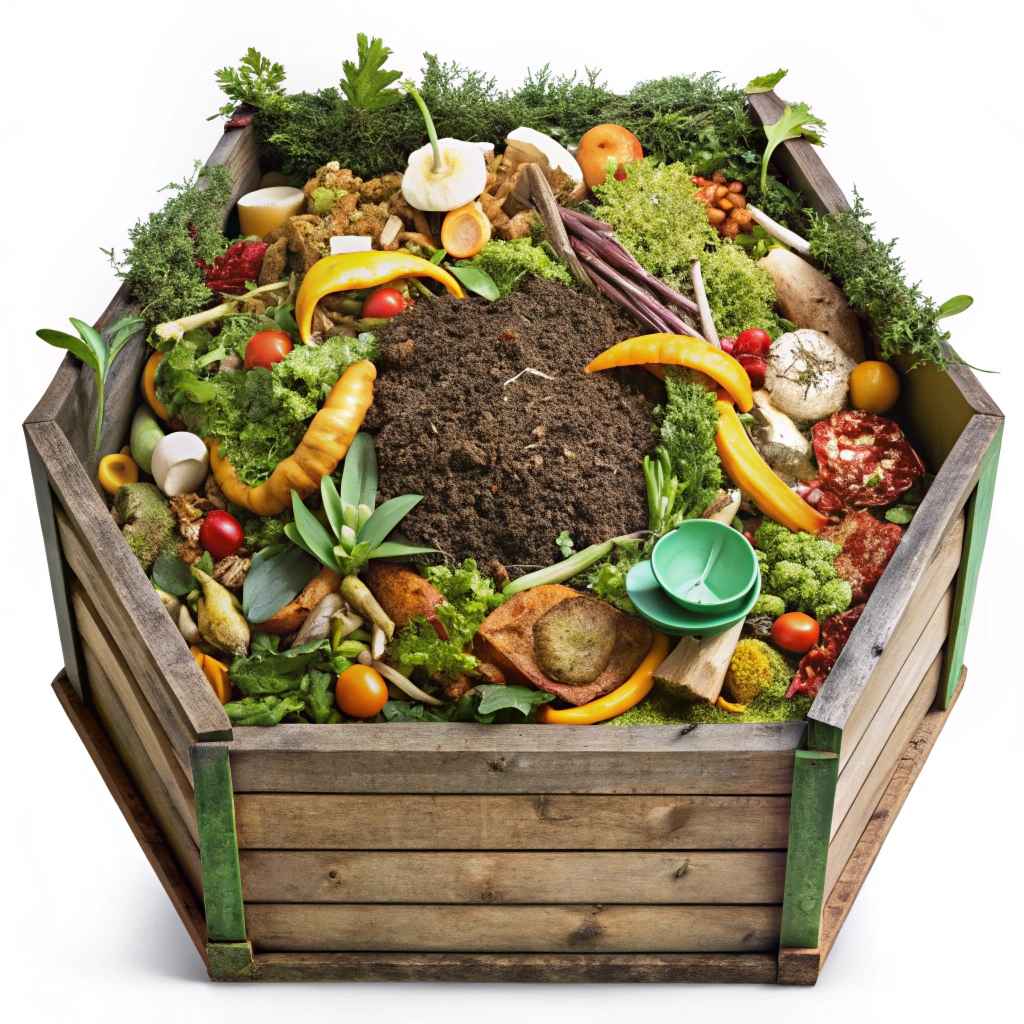Introduction
Sustainable zero waste refers to a lifestyle aimed at reducing the amount of waste you produce to the bare minimum. In a world of climate change and overflowing landfills, adopting a zero-waste lifestyle is more crucial than ever. This approach minimizes waste and encourages eco-conscious choices that benefit the environment.
Implementing solid waste management strategies can have a significant positive impact on both the planet and your well-being. Benefits include a cleaner environment, reduced pollution, and even potential savings on household expenses. By adopting a waste-free lifestyle, you contribute to a healthier planet and set an example for future generations.
Understanding Sustainable Zero Waste
Principles of Sustainable Living and Zero Waste
Sustainable living and zero-waste principles revolve around minimizing waste, conserving resources, and making eco-conscious choices. This lifestyle encourages using recyclable materiale, reusable, and biodegradable alternatives. Sustainable zero-waste living aims to close the loop by reducing consumption and reusing materials, ensuring that waste is minimized and resources are used efficiently.
Minimalism and Sustainability

Minimalism and sustainability are interconnected concepts. Conservation of natural resources is a vital aspect of sustainable living. Minimalism promotes living with less, which naturally leads to less waste. By prioritizing quality over quantity and opting for durable, multi-functional items, minimalists contribute to a more sustainable world. The minimalist approach complements the zero waste approach, encouraging mindful consumption and reducing unnecessary waste.
Ethical Consumerism
Adopting waste generation-conscious attitudes and waste strategies can significantly impact the environment. Consumers can make a positive impact by choosing products with minimal packaging and made from sustainable materials. Additionally, supporting companies prioritizing waste principles and conservation contributes to a more sustainable future. Waste prevention is crucial to sustainable living, and every small change counts.
Embracing a sustainable zero-waste lifestyle is a journey that requires dedication, patience, and a willingness to learn. Incorporating these principles into your daily life will contribute to a more sustainable options-oriented future.
Ethical consumerism plays a pivotal role in achieving zero waste goals. By supporting companies that prioritize sustainability, fair labor practices, and eco friendly packaging, consumers can drive positive change. Ethical consumerism encourages transparency and accountability, pushing businesses to adopt more sustainable practices that minimize waste and promote environmental conservation.
Zero Waste Products: The Essentials

Adopting a zero-waste lifestyle often starts with incorporating zero waste community-endorsed products into your daily routine. Here are some essentials:
- Reusable Bags and Containers: Ditch single-use plastic bags for reusable shopping bags and containers. Brands like Stasher offer silicone bags that replace plastic zip-lock bags, contributing to reduction in waste.
- Biodegradable Alternatives: Swap out plastic straws and cutlery for biodegradable options from bamboo or stainless steel. Companies like FinalStraw provide sustainable alternatives that align with a perfect zero-waste world vision.
- Eco-Friendly Packaging: Opt for products with minimal or recyclable packaging. Brands like Loop are revolutionizing packaging by offering reusable containers, fostering a sustainable diet in daily life.
- Sustainable Home Goods: Invest in cloth napkins, beeswax wraps, and glass jars. These products reduce waste and promote a no-waste lifestyle.
Integrating these products into your daily routine can significantly reduce your environmental impacts and contribute to a more environmentally conscious society.
Here is a table outlining some popular zero waste products and their benefits, highlighting the importance of waste prevention and zero waste practices:
| Product | Description | Benefit |
| Reusable Bags | Bags made from cloth, silicone, or other durable materials that follow the waste reduction hierarchy | Reduces single-use plastic waste |
| Beeswax Wraps | Sustainable alternative to plastic wrap, promoting eco-friendly practices | Biodegradable and reusable |
| Stainless Steel Straws | Durable straws that can be cleaned and reused, reducing solid waste | Reduces plastic straw waste |
| Bamboo Toothbrushes | Toothbrushes made from biodegradable bamboo, adopting sustainable clothing principles | Eco-friendly alternative to plastic toothbrushes |
| Glass Jars | Reusable jars for storing food and other items, encouraging zero-waste habits | Reduces the need for plastic containers |
Composting at Home: A Key Strategy

Benefits of Composting
Composting at home is a powerful long-term waste management strategy. It turns kitchen scraps and yard waste into nutrient-rich compost, reducing waste sent to landfills. Composting also enriches the soil, reduces methane emissions, and lowers your carbon-neutral footprint.
How to Start Composting
Starting a compost pile is straightforward:
- Choose a Compost Bin: Select a bin or build a compost pile in your backyard, ensuring a waste plan is in place.
- Add Compostable Materials: Include kitchen scraps (fruit and vegetable peels, coffee grounds) and yard waste (leaves, grass clippings), thereby minimizing waste encompasses waste.
- Maintain Balance: Ensure a balance of green (nitrogen-rich) and brown (carbon-rich) materials, supporting environmental protection.
- Turn the Pile: Regularly turn the compost to aerate it and speed up decomposition, promoting reused practices.
- Harvest the Compost: After a few months, your compost will be ready to use in the garden, reducing the need for synthetic fertilizers and supporting recycled products.
Common Composting Mistakes
Avoid these pitfalls:
- Adding Meat or Dairy: These can attract pests and cause odor issues, highlighting the importance of proper greenhouse management.
- Neglecting to Turn the Pile: Lack of aeration slows decomposition and hinders effective waste reduction.
Sustainable Fashion: Dressing with Purpose
Concept of Sustainable Fashion
Sustainable fashion is an approach to fashion that considers the reuse and recycling of clothing, reducing waste, and promoting eco-friendly practices throughout the entire fashion cycle.
Sustainable fashion emphasizes eco-friendly practices in the clothing industry. This includes using organic materials, recycling textiles, and ensuring fair labor practices. Sustainable fashion aims to reduce clothing production’s environmental and social impact, contributing to solid waste generation.
Eco-Conscious Clothing Choices
When shopping for clothes, consider these tips:
- Buy Second-Hand: Thrift stores and online platforms like ThredUp offer quality second-hand clothing.
- Support Ethical Brands: Choose brands committed to sustainability, such as Patagonia and Everlane, which prioritize waste disposal management.
- Opt for Natural Fibers: Prioritize clothing made from organic cotton, hemp, or bamboo.
Recycling Best Practices in Fashion
Recycling sustainably plays a crucial role. Donate unwanted clothes, repurpose old fabrics, and recycle textiles whenever possible. Brands like H&M offer in-store recycling programs for old garments, providing valuable waste tips.
Sustainable Kitchen Tips: Reducing Waste at Home
Practical Tips for a Sustainable Kitchen
Creating a sustainable kitchen involves several practical steps, including adopting sustainable actions to reduce waste:
- Use Reusable Containers: Store leftovers in glass or stainless steel containers.
- Buy in Bulk: Reduce packaging waste by purchasing bulk items.
- Opt for Cloth Napkins: Replace paper napkins with reusable cloth ones.
Reducing Food Waste
To minimize food waste and strive for carbon neutra,:
- Plan Meals: Create a weekly meal plan to avoid overbuying.
- Use Leftovers: Incorporate leftovers into new meals.
- Compost Scraps: Turn kitchen scraps into compost, helping to conserve natural resources.
DIY Zero Waste Practices
Engage in DIY zero waste practices like cleaning products using natural ingredients. This reduces packaging waste and harmful chemicals in your home, supporting waste programs. You can also use a starter kitzero waste kit to get started.
Overcoming Zero Waste Challenges
Common Challenges
In embracing eco principles, remember that every small step counts and even environmental hierarchy considerations can significantly impact. By adopting a sustainable approach, we can reduce our ecological footprint and take responsibility for our actions.
Adopting a zero-waste lifestyle comes with challenges, including:
- Limited Access to Zero Waste Products: Not all areas have stores that offer sustainable alternatives, reducing the likelihood of accumulating dumps and garbage.
- Initial Costs: Some zero-waste products can be more expensive upfront, but they help minimize super wasteful habits and excess consumption.
- Habit Changes: Adjusting to new habits can take time and effort, especially to avoid contributing to landfill waste.
Solutions and Strategies
To overcome these challenges:
- Research Local Resources: Find local zero waste shops and farmers markets to reduce trashe and junk.
- Budget Wisely: Invest in durable, long-lasting products to save money in the long run and avoid generating waste.
- Take Small Steps: Gradually incorporate zero waste practices into your routine to minimize rubbish.
Success Stories
Individuals like Bea Johnson, author of “Zero Waste Home,” have successfully embraced a zero-waste lifestyle. Her family of four produces just one jar of waste annually, proving that significant waste reduction is achievable.
Sustainable Shopping: Making Eco-Friendly Choices
Importance of Sustainable Shopping
Sustainable shopping habits are essential for reducing waste and supporting eco-friendly brands. Consumers can drive demand for sustainable products and practices by making informed choices, ultimately reducing waste.
Identifying Eco-Friendly Products and Brands
Look for:
- Certified Labels: Fair Trade, USDA Organic, and B Corp certifications indicate sustainable practices.
- Transparent Companies: Brands that provide information about their supply chain and sustainability efforts.
- Minimal Packaging: Products with minimal or recyclable packaging.
Reducing Plastic Waste
To reduce plastic waste:
- Use Reusable Bags: Avoid single-use plastic bags.
- Choose Glass or Metal: Opt for products packaged in glass or metal over plastic.
- Buy in Bulk: Purchase bulk items to reduce packaging waste.
Alternative Waste Management: Beyond Recycling
Various Waste Management Strategies
Beyond recycling, consider:
- Upcycling: Transforming waste materials into new products through efficient cleanup practices.
- Community Programs: Participating in local waste reduction initiatives like residential waste stream management.
- Composting: Diverting organic waste from landfills is crucial in special waste diversion.
Role of Community Programs
Community programs like TerraCycle offer recycling solutions for hard-to-recycle items, reducing the amount of discarded products in landfills. Local composting programs and zero waste workshops also support sustainable living.
Innovative Waste Management Solutions
Countries like Sweden and Germany are pioneers in waste management. Sweden’s waste-to-energy program converts household waste into energy, while Germany’s strict recycling laws have resulted in high recycling rates, effectively tackling the issue of municipal solid waste.
Here is a table outlining some innovative waste management solutions:
| Country | Solution | Description |
| Sweden | Waste-to-Energy | Converts household waste into energy, reducing landfill use and generating waste-based energy |
| Germany | Strict Recycling Laws | High recycling rates due to stringent recycling regulations, a prime example of producer responsibility |
| Japan | Circular Economy | Focus on reducing, reusing, and recycling to create a circular economy, minimizing solid waste data |
| South Korea | Food Waste Recycling | Mandatory food waste recycling program to reduce organic waste sent to landfills |
Sustainable Travel Tips: Exploring the World Responsibly
Tips for Sustainable Travel
When traveling:
- Choose Eco-Friendly Accommodations: Stay at hotels committed to sustainability, ensuring a plastic waste-free environment.
- Use Public Transportation: Reduce your carbon footprint by using public transit, an efficient way to avoid sewage systemse congestion.
- Pack Light: Travel with minimal luggage to reduce fuel consumption and reconsider purchasing discarded materials.
Eco-Friendly Accommodations and Transportation
Websites like EcoBnB list eco-friendly accommodations worldwide, encouraging waste-based business opportunities. For transportation, consider using trains or buses instead of flying for short distances.
Incorporating Zero Waste Practices
Pack reusable items like water bottles, utensils, and cloth bags. Avoid single-use plastics and support local businesses that prioritize sustainability, reducing solid wastes in the process.
Conclusion
Adopting own eco practices is essential for a healthier planet and future generations. We can significantly reduce our environmental footprint by switching to paperless bills and reducing our reliance on physical documents. Implementing deep cleaning projects in our daily lives can make a substantial difference. It’s crucial to acknowledge the devastating impact of greenhouse gas emissions on our planet. To combat this, we can invest in sustainable kits that promote eco-friendly living. When making purchasing decisions, we must consider the value of choosing products that align with our values.
Moreover, choosing a sustainable brew can be a great way to start our day while keeping the planet in mind. Join the growing community of individuals committed to sustainability and eco-conscious choices. Together, we can create a waste-free world.

Leave a Reply